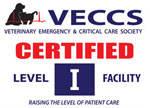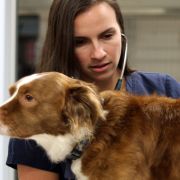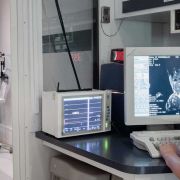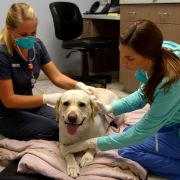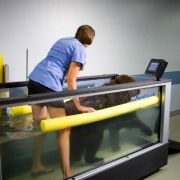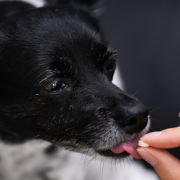Date:
There is a lot of buzz about grain-free diets. Many people have eliminated grains from their own diets for a variety of health reasons, and, wanting the best nutrition for their animals, have selected grain-free diets for their pets as well. Pet food shelves are now full of grain-free options, and finding a food that contains the typical ingredients of wheat or corn is not easy. But, is eliminating an entire food group a good idea? Grain-free diets have now been linked to heart disease in dogs, and although it’s too early for long-term studies to demonstrate a causal relationship, evidence suggests you should steer clear of this fad.
What Are Grain-Free Diets for Pets?
Most pet foods have historically been manufactured with wheat, corn, or other grains as their main carbohydrate source. However, the pet food industry has followed the recent shift in human nutrition to gluten-free and low-carbohydrate diets and is now manufacturing foods made with alternate carbohydrate sources, such as peas, lentils, other legume seeds, and potatoes. This change may have inadvertently created more of a problem than it solved.
Boutique pet foods and exotic diets made with non-traditional ingredients may also cause problems. Additions such as kangaroo, lamb, buffalo, salmon, venison, tapioca, or barley may sound like fancier options for your pet, but they don’t come with the decades of research proving their nutritional benefits like typical ingredients. Likewise, small boutique pet food companies often do not employ veterinary nutritionists to formulate their foods with the necessary nutrients, or use scientific studies to prove their safety.
How Can a Grain-Free Diet Harm Your Pet?
In July 2018, the Food and Drug Administration (FDA) announced a formal investigation into a potential link between grain-free foods and dilated cardiomyopathy (DCM) in dogs. DCM is not a new disease; it has been recognized as a genetic condition in breeds such as boxers, Doberman pinschers, Great Danes, and cocker spaniels for years. However, DCM cases have recently risen in breeds not typically predisposed and in young dogs, as well as in typical breeds. Upon investigation, boutique, exotic, and grain-free (BEG) diets have been found to be a common factor. The FDA continues to work with veterinary nutritionists and cardiologists to identify the relationship.
What Is Dilated Cardiomyopathy in Dogs?
DCM is a heart disease that causes the heart muscle to be weak, leading to ineffective contractions and decreased blood flow. Over time, the heart becomes flabby and dilated. A pet with DCM can eventually develop congestive heart failure, which could limit life expectancy.

A link between diet and DCM was demonstrated decades ago in cats who were fed diets deficient in taurine, an amino acid. Cat food manufacturers then reformulated feline diets to include adequate taurine levels, and DCM became rare in cats. Although a clear relationship between BEG diets and taurine deficiency has not been identified in dogs, taurine remains a nutrient of interest in the FDA’s investigation.
What Diet Should You Feed Your Pet?
Although it is common to think that a pet might be allergic to grain, this is actually unlikely to be the case. The majority of food allergies are to proteins, not grains. There is no scientifically proven advantage to feeding your pet a BEG diet. Unfortunately, there are a lot of strong opinions to be found online that are not backed by science. Your trusted primary care veterinarian, a veterinary nutritionist, or a veterinary cardiologist are the best sources of advice about your pet’s food. We recommend a diet that meets the World Small Animal Veterinary Association’s nutritional criteria. If you are currently feeding a grain-free diet, don’t panic. Ask your veterinarian to help you choose a new diet made with tried-and-true ingredients that will fulfill your pet’s nutritional needs. Unlike dogs with naturally occurring DCM, dogs who have developed DCM while on a grain-free diet usually improve after being switched to a new diet.
If you have questions about grain-free diets, or how to choose an appropriate food for your pet, contact us or your family veterinarian.



